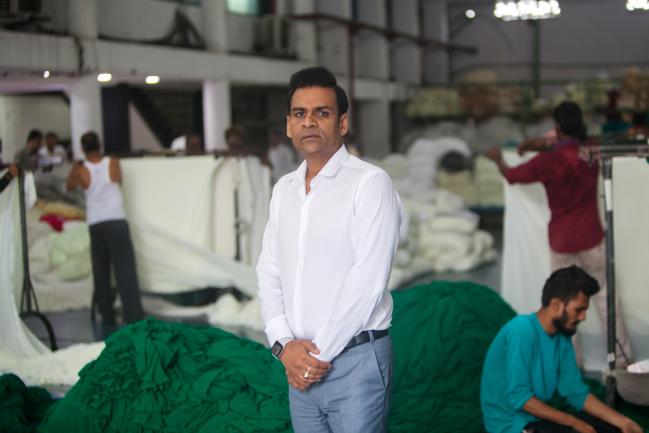(Bloomberg) -- The turmoil that’s rocked emerging markets this year is spreading from bankers and traders to bakers and tradesmen, dampening growth prospects for some of Asia’s fastest-growing economies.
India, Indonesia and the Philippines share a common weakness -- current account deficits -- leaving them reliant on global investors. While the three still boast robust economic growth, foreign currency buffers and manageable debt levels, their central banks have been forced to raise interest rates to head off inflation and defend tumbling currencies as the Federal Reserve continues to move away from crisis settings.
The ripples of those actions have swamped currency and bond markets all year, sending the rupee, rupiah and peso to historic lows. Now, the effect is starting to be felt in the real economy as import prices spike, borrowing costs rise and companies cancel expansion plans. It’s companies like Indian textiles manufacturer Laxmipati Saris and Indonesian shoemaker PT Panarub Industry that are bearing the brunt.
Nicole Cruz’s family’s fishery in Bulacan, a province north of Manila in the Philippines, also faces tough choices. Cruz usually borrows to pay for fish feed and other supplies upfront, when they are cheaper, instead of paying after the harvest. But after 150 basis points in official interest rates hikes this year, those loans don’t make sense anymore, forcing her to use the 22-year-old business’ own reserves and putting a halt to plans to lease additional fish ponds, buy new equipment and raise wages for workers.
It doesn’t help that inflation is also at a nine-year high in the Philippines. To combat that, the central bank on Thursday raised its benchmark interest rate by half a percentage point for a second consecutive meeting -- its most aggressive tightening since 2000 -- delivering on its pledge for strong action to rein in surging prices.
"We’re being squeezed from all sides," Cruz said.
With the Federal Reserve raising interest rates on Wednesday and telegraphing another rise in December and more next year, the pain for Cruz isn’t about to go away.
In Indonesia, businesses across the country are starting to feel the pain. Panarub Industry, which used to make sandals, has grown to the point where it can produce almost two million pairs of shoes a month for the likes of Adidas AG (DE:ADSGN).
Panarub had grand plans to more than double capacity at a factory at Brebes in Central Java and had taken out several bank loans, some of which had floating rates, to the finance expansion plans, with the boost in production to come online next year. Five interest rate increases since May -- the most recent also coming on Thursday -- have changed things.
"Looking at the current situation, with the ongoing market volatility, that expansion plan might be realized in 2020 at the soonest," said Panarub director Budiarto Tjandra. "We have been forced to put on hold some of our expansion plans."
As well as raising interest rates, Indonesian authorities have also taken steps to curb imports, raising taxes on more than 1,000 goods from cosmetics to supercars, and put on hold $25 billion worth of power projects. The energy move -- while a short-term relief to the current account deficit -- undermines efforts to boost the nation’s power capacity and thereby its growth potential.
Worries about the rupiah’s decline have even begun to spillover onto the streets, with a mass protest in the city of Medan on the island of Sumatra this month.
India is showing similar signs of stress.
Sanjay Sarawagi is Chairman of Laxmipati Saris, which has a total turnover of 6 billion rupees ($83 million) and borrowings of about 3.25 billion rupees. The last couple of years have been tough for business due to the cash ban and introduction of a consumption tax. Things had only just started to recover before the weaker rupee, higher interest rates and prospects for a global trade war sapped confidence.
"With the RBI raising rates, our interest costs have risen," Sarawagi said. "Last fiscal year, our overall interest rate was 9.1 percent. Now we’re paying 9.25 percent."
The RBI is expected to tighten again as early as next week. Sarawagi said he’s expecting average bank borrowing costs could rise to 9.50 percent.
Compounding the strain, the weaker rupee is driving up import costs for raw materials and that will likely feed into prices. Officials in India are aware of the pain. Monetary policy committee member Ravindra Dholakia in August described India’s real policy rates as very high compared to most other countries and an impediment to higher growth. "It is already adversely impacting capital formation," he said.
As the reality of higher borrowing costs and inflated import bills bite across the three economies, their growth prospects will remain pressured. That will only further increase the higher yield international funds demand to invest in the nations, making life even tougher for Laxmipati, Cruz’s fishery and Panarub’s shoe business.
